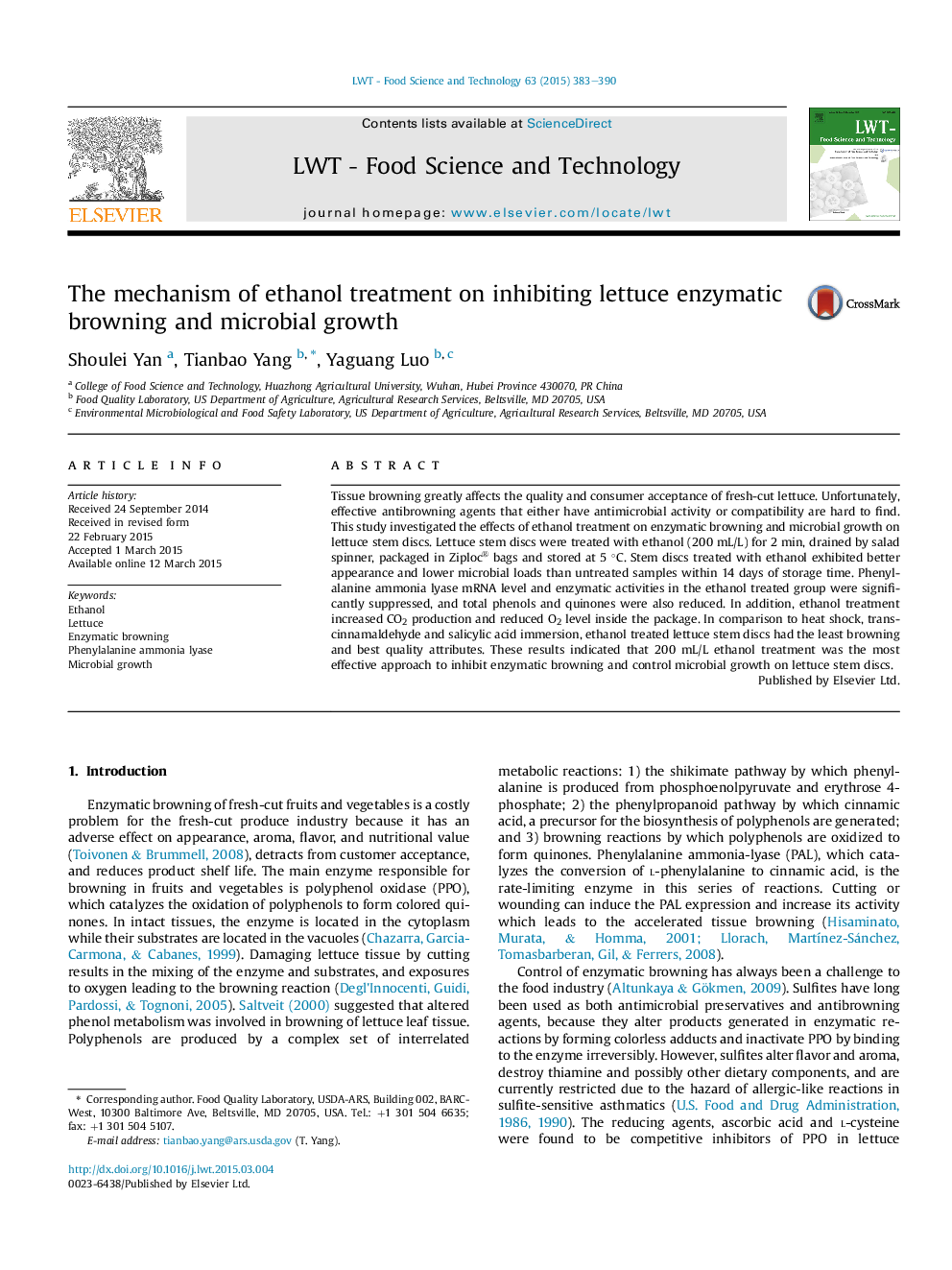| Article ID | Journal | Published Year | Pages | File Type |
|---|---|---|---|---|
| 6402080 | LWT - Food Science and Technology | 2015 | 8 Pages |
Abstract
Tissue browning greatly affects the quality and consumer acceptance of fresh-cut lettuce. Unfortunately, effective antibrowning agents that either have antimicrobial activity or compatibility are hard to find. This study investigated the effects of ethanol treatment on enzymatic browning and microbial growth on lettuce stem discs. Lettuce stem discs were treated with ethanol (200 mL/L) for 2 min, drained by salad spinner, packaged in Ziploc® bags and stored at 5 °C. Stem discs treated with ethanol exhibited better appearance and lower microbial loads than untreated samples within 14 days of storage time. Phenylalanine ammonia lyase mRNA level and enzymatic activities in the ethanol treated group were significantly suppressed, and total phenols and quinones were also reduced. In addition, ethanol treatment increased CO2 production and reduced O2 level inside the package. In comparison to heat shock, trans-cinnamaldehyde and salicylic acid immersion, ethanol treated lettuce stem discs had the least browning and best quality attributes. These results indicated that 200 mL/L ethanol treatment was the most effective approach to inhibit enzymatic browning and control microbial growth on lettuce stem discs.
Related Topics
Life Sciences
Agricultural and Biological Sciences
Food Science
Authors
Shoulei Yan, Tianbao Yang, Yaguang Luo,
